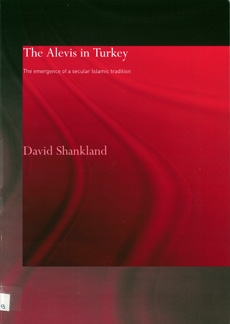|
FOREWORD
As this work is concerned greatly with the difference between two Islamic groups, a preliminary description of their respective religious practices is offered below.
Most of the Sunni population regard themselves as believing Muslims: the men pray in a mosque and affirm the importance of the five conditions of Islam: Islam’ın beş şarti (believe in the one God; pray five times a day; give alms; keep the fast in the month of Ramazan-, make the pilgrimage to Mecca), though not all practise them assiduously. Pious men may say that the Kuran encapsulates all the knowledge in the world and all the books that have ever been or shall be written. Such men tend to dislike music or dance, regarding it as sinful. Some men, perhaps half a dozen in most villages (though on occasion a village may have none or substantially more) are members of an Islamic brotherhood, tarikat, often the Süleymancis. These men regard the tarikat as a complement to orthodox Islam, a way of better understanding and implementing the revealed, infallible word of the Kuran and the immutable work of the Prophet Muhammed, and not as an alternative path to truth. Other currents of Islamic thought include the modernist movement represented by the Nurcus, or the Fethullacis, and also the political Islam.
Alevi religious doctrines are often based on those of the Bektaşi tarikat and are very strongly influenced by a text known as the Buyruk, which they attribute to Imam Cafer. According to both Bektaşi doctrines and the Buyruk, the first and necessary step towards personal development is mastering orthodox practice, which they know as Şeriat. In practice, however, most Alevis do not hold the Kuran to be literally true, and they go only very occasionally to mosques. The great majority of Alevis do not regard praying by genuflecting, going to Mecca, fasting in Ramazan, or paying alms to be a requirement for religious fulfilment. Instead, they favour the contemplation of a mystical, or esoteric version of faith, which they know as Tarikat, and trace its source to secrets that have been revealed by God to Ali, the Prophet’s son-in-law. While the Alevi practice of religion in the sub-province has gone through many reformulations and changes in the past decades, it is currently influenced by a growing populist movement in Turkey as a whole which is likely to result in a codification, albeit one sometimes contested, of their hitherto largely oral tradition.
Introduction
In this book, I discuss a heterodox Islamic group in Turkey known as the Alevis, and address the way that their community has become secular, albeit within a very wide range of personal belief. It would be disingenuous to claim that such a study can be made without controversy. Even leaving aside the question of individual faith, the possibility of clashes with the majority Sunni population, the relationship between religion and the state, the place of politics in religion, and the question of the respective numerical proportion of Alevi to Sunni are all topics where varied and forceful views have been brought to bear. These debates are likely to become even more heated in the future.
It might be useful, therefore, to note immediately that it is an unheralded success of the Republic that for much of its seventy-five years’ existence systemic conflict between the Sunnis and the Alevis has been avoided. There has, of course, been other social unrest, such as the tragic situation in eastern Anatolia and the civil violence that led to the 1980 coup, conflict that has drawn in the Alevi communities and impacted upon them. Nevertheless, in marked contrast to the Ottoman Empire, for much of the history of modern Turkey, many of the Alevis (and particularly the Turkish Alevis) have felt able to identify strongly with its aims, and have prided themselves upon their loyalty.
In spite of this, the situation has been, and remains, potentially difficult. There has been sporadic violence. In brief but bloody riots at Çorum, Kahra-manmaraş, Gaziosmanpaşa (a district of outlying Istanbul), and at Sivas, Alevis have been killed. These riots appear to have been at least partially religiously motivated, exacerbated by a frequently held idea among Sunni activists that Alevilik (‘Aleviness’) is not rightfully a form of Islam at all. The Alevis, on the other hand, frequently point to substantial changes in the relationship between religion and state that have occurred since the Republic’s inception. They claim, for example, that whereas they have supported secularism wholeheartedly, the state has become far more active in supporting religion, and in particular a Sunni form of Islam, than was envisaged by the Republic’s founders. This means that many Alevis fear that the state may once more become an instrument of prejudice, just as it was in Ottoman times. They claim, further, that …
|
